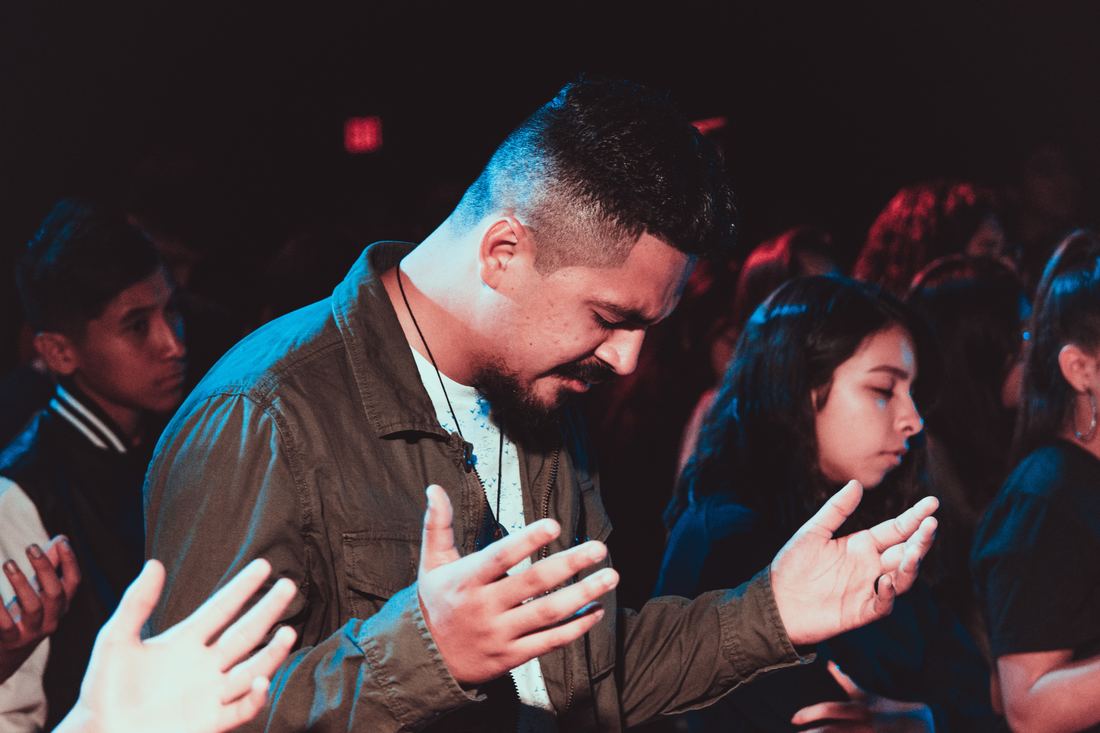|
Lesson 10
Contentment and God’s Provision Philippians 4:10-23 * Review and Report on last week’s Walking Points questions and next steps. Thoughts? How did you do? Share any victories and/or struggles you may have had following through with your plan. 1. Read Philippians 4:10-23 twice. Write down any key ideas or phrases that catch your attention. What are the key principles you believe we ought to draw from this text? Why did you choose those principles? 2. As Paul moves toward the close of his letter, he expresses his gratitude to the Philippians for their support of his ministry. Read verses 10-11. What does Paul want the Philippians to understand? What does it mean to be content? 3. How does Paul describe his understanding of contentment in verse 12? Read 1 Corinthians 4:11-13; 2 Corinthians 6:4-10; Acts 27:13-28:10. How do these verses teach and illustrate Paul’s understanding of contentment? 4. According to verse 13, how is Paul able to be content, regardless of his circumstances (vv. 11-12)? How might verse 13 be misinterpreted? Practically speaking, how does Christ enable Christians to be content during the hard times and the good times? 5. In verses 14-15, Paul referred to the beginning of his ministry with the Philippians. Why did he have such affection and appreciation for them? Read Acts 16. Write down the ways God was working before and during Paul’s ministry in Philippi. List also what happened to Paul and his companions during this time. What are three of the most important principles you learned from Acts 16? Explain why you chose each. 6. After Paul left Philippi (Acts 16), he headed for Thessalonica (Acts 17:1-9) to minister there. What did the Philippians continue to do, even after Paul left Philippi? What does this tell you about Paul’s relationship with the Philippians? 7. What is Paul’s main point in verse 17? Paul knew the gifts he received from the Philippians would not only bless his ministry, but them as well. Read the following verses (Matthew 6:20; Matthew 19:21; Luke 12:33). What does Jesus say will happen when you bless others? 8. In verse 18, Paul told the Philippians their gifts to him were a “fragrant offering, a sacrifice acceptable and pleasing to God.” Read the following verses: Genesis 8:20-21; Exodus 29:15-18; Ezekiel 20:41; Hebrews 13:16; 1 Peter 2:5; Romans 12:1; 2 Corinthians 2:14-16; Ephesians 5:2. Paul went back to the Old Testament to draw upon the idea of a fragrant and acceptable sacrifice which pleases God. How are the sacrifices in the Old Testament and New Testament different from one another? How are they similar? Is Paul teaching that Christians are saved by their works? Explain. 9. The Philippian church was not wealthy, and yet they gave generously. How did Paul say God would respond to their giving, in verse 19? What do you think Paul meant? Read 2 Corinthians 8:1-4 and Luke 21:1-4. How are the gifts offered by the Macedonian churches (which meant the Philippians) and the widow described? What does it mean to give sacrificially or “beyond your ability?” 10. Read verses 21-22. What do these two seemingly insignificant verses teach you about the Apostle Paul and his ministry? Who may Paul have had in mind when referred to those in Caesar’s household?” What is the big picture of what this meant? Walking Points 11. Does our culture tend to promote contentment or discontentment? Explain your answer and cite examples. Why does God call us to be content? Would you describe yourself as usually content or discontent? Explain. What are three ways you could learn to become more content than you presently are? Can you think of a godly or positive form of discontentment? Explain. 12. How are you doing with your giving to the church and other kingdom work? Do you give sacrificially? Why or why not? What obstacles are in your way? Pray for the Lord to guide you on this topic and to move you toward greater faithfulness in this area of your life. 13. Who or where are the “Caesar’s households” of our day? Do you pray for the Gospel to reach such people and places? Write down three such people and/or places (be specific) and start praying for them each week.
0 Comments
Lesson 9
Godly Encouragement, Prayer, Thinking, and Practice Philippians 4:1-9 * Review and Report on last week’s Walking Points questions and next steps. Thoughts? How did you do? Share any victories and/or struggles you may have had following through with your plan. 1. Read Philippians 4:1-9 twice. Write down any key ideas or phrases that catch your attention. What are the key principles you believe we ought to draw from this text? Why did you choose those principles? 2. Because Christians are citizens of heaven and await our Savior, the Lord Jesus Christ, who will transform our lowly body to be like his glorious body (3:19-21), and because he will subject all things to himself (3:21), Paul tells the Philippians to stand firm in the Lord (4:1). What does it mean to “stand firm” in the Lord? 3. Paul turns his attention to a personal matter between two women in the Philippian church that was not a small and insignificant matter. While doctrinal error or sin was probably not at issue (otherwise, Paul would have corrected it), it still needed to be dealt with for the sake of unity in the church. What did Paul plead for Euodia and Syntyche to do? Since error and sin were probably not in view here, what might Paul’s plea have meant? What role had these two women played in the ministry of Paul? What did Paul tell the Philippians to do regarding these women? 4. As we have learned, the Apostle Paul was in prison as he wrote this letter. In verses 2-3 we saw there was personal dissension taking place in the church. Therefore, how was Paul still able to tell the Philippians to rejoice always? How did he describe this rejoicing (v. 4)? What do you think he meant by that qualifier? 5. In verse 5 Paul said, “Let your reasonableness be known to everyone” Other translations refer to it as “gentleness.” In either case, why was the public display Paul encouraged important? How do Paul’s words, “The Lord is at hand (v. 5) add a little extra motivation to behave in such a way? 6. Paul commanded the Philippians to not be anxious about anything (v. 6). (Read Matthew 6:25-34.) Based on these verses from Philippians and Matthew, what does it mean to “be anxious?” What is it about worry or anxiety that warrants these words from Jesus and Paul? 7. What are the components of prayer Paul lists, in verse 6? 8. Read verses 4-7 again. How can Paul’s words in these verses help you when you experience worry and anxiety? (Better yet, how can his words help you before you feel worry and anxiety?) 9. How would you describe the “peace of God which surpasses all understanding” to a friend? What does Paul mean by saying the peace of God “will guard your hearts and your minds in Christ Jesus?” Share a time when you experienced this kind of peace? Describe what it was like. 10. In verse 8, the Apostle Paul provides us with one his great lists. What do you think it means to “think about these things?” Beside each word below, write the definition of the word, why you think it is important for a Christian to “think about,” and what its opposite is. · Whatever is true – · Whatever is honorable (noble) – · Whatever is just (right) – · Whatever is pure – · Whatever is lovely – · Whatever is commendable (admirable) – · Any excellence – · Anything worthy of praise – 11. What did Paul expect the Philippians to do, based on what they had been taught by him and seen in his example? What would be the outcome, if they did? Walking Points 12. How can standing firm for the Lord (standing firm in your faith) be difficult in your daily life? Does our surrounding culture make it harder or easier for you to do so? Explain. How can the members of this class help you stand firm? In what ways would Paul’s words in Philippians 3:19-21 encourage the Christians in Philippi, as well as Christians today, to stand firm in the Lord? 13. Why is unity in the church so important (see John 17:20-21)? How can a local church maintain unity without ignoring doctrinal error and sin? 14. Do you struggle with worry and anxiety? If so, why? How do you usually deal with it when you experience it? Are there any truths and principles you learned from the Scripture in this lesson that can help you with worry? Name two or three ways you will put them into practice, starting this week. 15. Pick three of the virtues from Paul’s list (see Question 10) and describe how you will “think about” each one, and will put it into practice. Share your ideas with an accountability partner and begin this week. Give a report to your accountability partner each week. Lesson 8
Pressing Toward the Goal Philippians 3:12-21 * Review and Report on last week’s Walking Points questions and next steps. Thoughts? How did you do? Share any victories and/or struggles you may have had following through with your plan. 1. Read Philippians 3:12-21 twice. Write down any key ideas or phrases that catch your attention. What are the key principles you believe we ought to draw from this text? Why did you choose those principles? 2. In verses 12-14, Paul compared the spiritual life to a foot-race. What did Paul say he had not already obtained, according to verse 12? Why do you think Paul used the physical description of “pressing on” or “straining toward” his goal? Do you press toward the goal like the Apostle Paul? Why or why not? What is it about spiritual maturity that makes it so hard to achieve? 3. Paul said, in verse 13, that he knew he needed to keep moving forward in his spiritual walk (or race) with Christ. Therefore, one thing he made sure to do was to “forget” what was behind him as he strained toward what was ahead. While we may never completely forget where we were when Christ saved us and the life of sin we left behind, how can dwelling on the past hinder our forward progress with Christ (see Luke 9:62: 17:31-32)? What parts of your past still occupy a spiritually unhealthy amount of your time and attention? What areas of your past do you still beat yourself up over? What comfort and conviction should Romans 8:1 bring to you regarding this? 4. What was the “prize” Paul was pursuing (v. 14)? (See also, 1 Corinthians 9:24-25; 2 Timothy 4:7-8; Hebrews 12:1-2) How should such a prize motivate Christians to continue running the race before them? Does God’s heavenly reward motivate you to strain forward and press on toward the goal? Why or why not? While Christians are not called to be so heavenly-minded that they’re no earthly good, how can being heavenly-minded, in the way Paul was talking about, actually help make Christians more earthly good than they might otherwise be? 5. What do those who are mature in their thinking (v. 15) realize that the legalists and others who are spiritually proud not understand, based on verses 12-14? Have you ever known or heard about professing Christians who believed they had “arrived” and did not need to continue growing in their faith? Why do you think they believed that? Based on what Paul wrote in Philippians 3:12-16, how would you help them better understand spiritual growth? (see also, Philippians 3:3-9) 6. In verse 17, the Philippians are told to imitate Paul and others who walk according to Paul’s example. What are some reasons Christians today often shy away from calling others to follow their example in Christian discipleship? Read Philippians 4:9; 1 Corinthians 11:1; 2 Thessalonians 3:7-9; 1 Timothy 4:12, 15-16; Hebrews 13:7. In Philippians 3:12, the Apostle Paul admitted he had not reached full Christian maturity, though he was straining toward that goal. Knowing that no one, except our Lord Jesus Christ, has ever or will ever live a fully mature spiritual life, how can we still call others to follow our example in the Christian life? How is encouraging others to follow our Christian example good for our own faith? 7. If we’re not following godly examples, what other examples are looming out there for us to follow, according to verses 18-19? Paul uses four phrases to describe these “enemies of the cross of Christ?” Write what you think each phrase means. Then, share how each description reveals that such people are enemies of the cross of Christ. · Their end is destruction – · Their god is their belly – · They glory in their shame – · Their minds are set on earthly things – 8. Where is our true citizenship (v. 20)? What does this mean for how Christians live in this world? 9. What will happen when Christ returns (vv. 20-21)? How do the following texts describe what happens at Christ’s return - Revelation 19:11-16; 21:22-27; Psalm 8:6; 1 Corinthians 15:24-28: Hebrews 2:8-9? What comfort, confidence, and hope do these verses give you? Walking Points 10. If Christ took the sins of Christians on himself and atoned for them, and if Christians receive the righteousness of Christ when they trust in him, then in what way do Christians still need to “press on” or “strain toward” the goal of spiritual maturity (see Philippians 1:6; 2:12-13)? What are three practical ways for a Christian to do this? 11. Do you really believe Romans 8:1 is true for those who have repented of their sins and trusted in Christ alone for their salvation? Have you repented of your sins and trusted in Christ alone? If so, claim the life-giving truth of Romans 8:1, forget what lies behind you, and press toward the goal because Christ Jesus has made you his own. Who will you share this good news with this week? If you have not repented of your sins and trusted in Christ, talk to a trusted Christian friend today and ask for their help in doing so. As Paul said, “today is the day of salvation.” 12. Who are three Christians you know who live spiritually mature lives? What is an example from each one of their lives that you want to follow? When you complete this lesson, write each of these people a handwritten note and thank them for their godly example. Lesson 7
The Surpassing Worth of Knowing Christ Philippians 3:1-11 * Review and Report on last week’s Walking Points questions and next steps. Thoughts? How did you do? Share any victories and/or struggles you may have had following through with your plan. 1. Read Philippians 3:1-11 twice. Write down any key ideas or phrases that catch your attention. What are the key principles you believe we ought to draw from this text? Why did you choose those principles? 2. The “same things” Paul referred to in verse 1, related to his call to the Philippians to “rejoice in the Lord.” How would you describe the difference between happiness and joy (what does each depend upon)? What would “rejoicing in the Lord” look like in your life? 3. As we have seen so far in this study, the Apostle Paul had a strong relationship with the Philippians and cared for them deeply. They did not have a history of having to contend with false teachers (Read Colossians and Galatians for a contrast.). However, Paul knew that false teaching would eventually find its way into the church. Read Philippians 3:2-3. Three times in one verse Paul says, “watch out” or “beware.” What does he seem to be talking about? What three ways does he describe this group of people to be on guard against? Why do you think he uses such strong language? Name two or three teachings in the church today that need to be warned against in a similar way. Why did you choose those teachings (i.e., how are they a danger to the church)? Describe them and your concern about them. 4. How did Paul contrast the Christians in Philippi to these false teachers (in verse 3)? Put his answer in your own words. How do people put confidence in the flesh today? What three things does Paul highlight about those who are the true “circumcision,” or, the true people of God? 5. In verses 4-6, Paul shares his religious credentials. List all the things Paul says he boasted in before he came to faith in Christ. Why were these things once impressive? What sorts of “credentials” do people today (including some who profess to be Christians) point to in order to establish their religious pedigree? Why is pointing to, (and, perhaps trusting in), such things a temptation? Which of these credentials do you tend to point to and trust in? Why? 6. Verses 7 and 8 reveal a profound and moving “paradigm shift” or change of perspective in Paul’s thinking. What was that change of perspective? Describe in your own words what Paul means by this new way of thinking, and consequently, living. What does he say in verse 8 was the main reason behind this new perspective. (Hint, he found something even more important.) 7. What does Paul mean in verse 8 when he says he counts everything as loss and even considers them as rubbish or garbage because of this new perspective? 8. At the end of verse 8 and in verse 9, Paul says that all he has given up, and all he now pursues, is to gain Christ and be found in him. Where does Paul now say he finds his righteousness? And what is he contrasting that to? How does he say he acquires or receives this righteousness? This is a central idea in the New Testament (Read Galatians 2:15-21; 3:10-14). How would you help a friend better understand that it’s not his or her efforts and good works they should trust in, but instead, a saving and intimate relationship with God comes only through faith in Christ? 9. What, according to verses 10-11, does Paul now want more than anything else? · What does it mean to “know” Christ (see John 17:3)? · What does it mean to know the “power of his resurrection” (see Romans 8:11)? 10. What Paul means when he says he desires to share in the sufferings of Christ is that all Christians will experience persecution and suffering for faithfully representing and serving Christ in this world (See Matthew 5:10-12). Read Romans 6:11 to better understand what Paul means by sharing in Christ’s death. Have you ever suffered for representing and serving Christ? Describe what happened. If you have never suffered for Christ, explain why you think that is. 11. How were the words Paul wrote in verse 11 an encouragement and source of hope for him? How are they a source of hope and encouragement for you? (Read also: 1 Corinthians 15:22-24; 1 Thessalonians 4:14-15; Luke 20:35-36; Revelation 22:1-7) Walking Points 12. “Knowing Christ Jesus my Lord” (v. 8), means far more than merely having information about Jesus, or only believing that it’s true. Pray about this phrase and go deep with it. What does it mean for you to know Christ Jesus as your Lord? What meaningful difference does that make in your daily life? · In your relationship with God? Family members? Coworkers? Neighbors? Others? · In your thoughts, words, attitudes, and deeds? Try to be specific in your answers. Sometimes we cop out of questions like these by being overly general, or by saying such things as, “Well, no one is perfect” or “I have a long way to go.” Growth in our lives will come by taking hard and honest looks at ourselves, exposing our sins and shortcomings, laying them on the altar before God, and asking him to forgive us, purify us, and empower us for more faithful living. 13. Read John 15:18-25. Jesus teaches several important ideas about the persecution of his disciples. Write down two or three of those key ideas and describe each. Also, share how you feel about those ideas and why you feel that way. In 1 Corinthians 1:18-31, Paul says the Gospel, the message of the cross, is foolishness and a stumbling block to the world. In other words, we don’t have to add to it’s offense by going out of our way to be “Jerks for Jesus.” Knowing this, what are three ways you can start lovingly and faithfully sharing the Gospel with others this week, even though you may bring on the hatred, mockery, and exclusion of the world? Will you trust Christ and lovingly and faithfully represent and serve him anyway? Lesson 6
Sending Fellow Workers Philippians 2:19-30 * Review and Report on last week’s Walking Points questions and next steps. Thoughts? How did you do? Share any victories and/or struggles you may have had following through with your plan. 1. Read Philippians 2:19-30 twice. Write down any key ideas or phrases that catch your attention. What are the key principles you believe we ought to draw from this text? Why did you choose those principles? 2. What reasons does Paul give for sending Timothy and Epaphroditus? 3. How does Paul describe the character of each of them? What is the value to a Christian community to have men like Timothy and Epaphroditus ministering to them? What is it about them that makes them such good shepherds to God’s people? 4. What does it say about the Apostle Paul, according to verses 19 and 20, that he wanted to send Timothy to the Philippians? What can you deduce about Paul and his relationship with the Philippians from these two verses? 5. Timothy traveled much with the Apostle Paul. Read 1 Corinthians 4:17, 16:10; 1 Thessalonians 3:2. What sorts of ministry has Timothy done for Paul and the churches in the past? What does this tell us about Timothy and his reliability? 6. What might Timothy have learned from the Apostle Paul during his travels with him? What is the value of such an apprenticeship for ministry? Can you think of any modern-day versions of this sort of training? 7. In verse 21, Paul is comparing Timothy’s selfless love for others with those who lack such love. He’s showing that Timothy is truly exemplary in this way. Based on verse 21, whose interest is Timothy most concerned about? Do you know anyone like Timothy? Many people talk a good game about caring for others, but few follow through. Timothy knew he may face some resistance in Philippi, but he was willing to go anyway. Look back at Paul’s words in Philippians 2:1-5 and list those attributes that describe Timothy. 8. In verse 25, Paul describes Epaphroditus in several ways. List them below and explain what Paul may have meant by each description. How was each description vital for Paul’s faith, life, and ministry? 9. Epaphroditus had come from Philippi to Paul with the gift of money as well as to care for Paul’s physical and spiritual needs on the Philippians’ behalf. However, while in Rome, Epaphroditus became very sick. Moreover, his concern for his loved ones back in Philippi added to his heartache. But God healed him. In what way did his healing bless the Apostle Paul (v. 27)? List some of the ways the illness of a loved one impacts you? How do you think Paul was impacted? What do you think the Philippians were going through, knowing that Epaphroditus was so sick? There was no phone service, texting, or anything of the like. How does the “waiting game” affect you while you wait to hear important news about a loved one? 10. What did Paul want to accomplish by sending Epaphroditus back to the Philippians? Why? Walking Points 11. Even though the Apostle Paul wrote such verses as Romans 8:28 and surely trusted in the sovereignty and goodness of God, he still grieved over the illness of his friend, especially since Epaphroditus was so close to death. What does that teach us about the place of grieving in the life of a Christian? Have you ever met a Christian who believed such grief revealed a lack of faith? Based on this lesson’s text, how would you attempt to guide them to think differently about such things? 12. Paul encouraged the Philippians to receive Epaphroditus in the Lord, with joy, and to honor him for the work of Christ he performed in his service to Paul. What might that look like? Who do you know that needs to be honored in such a way? What is it about that person that made you think of them? What will you do this week to show such joyful honor to them? 13. A brother, fellow worker, and fellow soldier are impressive accolades. These words show a depth of intimacy, support, care, and concern that Paul and Epaphroditus had for one another. Look up these verses: John 15:13-14; Proverbs 18:24; Ecclesiastes 4:9-10. What do these verses teach us about the value of such companionship? Do you have anyone in your life who is “that person” for you? Are you “that person” for anyone else? Share a little about this relationship and how it resembles what Paul (and these other texts) are talking about? Why are these relationships especially important for our faith and ministries? Lesson 5
Lights in the World Philippians 2:12-18 * Review and Report on last week’s Walking Points questions and next steps. Thoughts? How did you do? Share any victories and/or struggles you may have had following through with your plan. 1. Read Philippians 2:12-18 twice. Write down any key ideas or phrases that catch your attention. What are the key principles you believe we ought to draw from this text? Why did you choose those principles? 2. In Philippians 2:5-11, Paul presented a beautiful and majestic picture of Christ and his work. Now he tells the Philippians that because of who Christ is and what he has done, their lives, “therefore,” should reflect Christ’s life being lived in and through them. List the ways Paul says the Philippians should live, according to verses 12-18. 3. Read Ephesians 2:8-10; Romans 3:21-26; Galatians 2:15-16. In these texts Paul makes it clear that we are justified (i.e., declared righteous or saved) by grace through faith in Jesus Christ, and not by works. In Philippians 2:12, Paul calls the Philippians to “work out” their own salvation. What do you think he means? What do you think he does not mean? Explain your reasoning. What do you think Paul means by adding the phrase, “fear and trembling?” 4. Read Galatians 2:20 and Colossians 1:29. According to these verses and Philippians 2:13, how will the Philippians be able to work out their salvation? Describe why this good news is a source of hope and confidence for Christians who desire to faithfully live for God. 5. Paul says we should do all things without grumbling or disputing (or, arguing). What do the following words mean? · Grumbling – · Disputing (or, arguing) – Read 1 Corinthians 6:1-11 and 10:1-12. Why are grumbling and disputing, or arguing, so bad for individual Christians as well as Christian communities to practice? Compare and contrast what you find in these texts with what Paul describes in Philippians 2:1-11. How are they different? 6. According to verses 15-17, why does Paul want the Philippians to do all things without grumbling and arguing? 7. Read Matthew 5:43-48 and Romans 12:9-21. Based on these texts, what do you think Paul means by exhorting the Philippians to be blameless and pure in the midst of a crooked and twisted generation? Read Deuteronomy 32:5. How did Moses describe Israel when they went astray? Paul surely had those words of Moses in mind when he wrote about his own crooked and twisted (or depraved) generation. Describe two or three ways in which ours is a crooked and depraved generation. What do you think it means to “shine as lights in the world” (v. 15)? See also, Matthew 5:13-16. 8. The phrase in verse 16, “holding fast,” can also be rendered “hold out.” Thus, it can mean either “remaining steadfast” in the word of life, or “offering” it to others. Regardless of which way it is meant, what is the “word of life” that Paul refers to? Read Acts 5:17-21 and 1 John 1:1-3 for help. Paul was looking forward to the “day of Christ” when he might be proud, not of his accomplishments, but in the way God moved in and through the faithfulness of the Philippians. Read 2 Corinthians 5:10; 1 Corinthians 4:1-5; Romans 14:10-12. Based on these texts, what happens at the “day of Christ” and why would Paul want to make a good showing? [We are not saved by our own good works. We are saved by grace alone through faith in Christ alone. And yet, as Paul says in Ephesians 2:10, and earlier in verse 12, our salvation in Christ should bear the fruit of good works. We are saved for good works, not by our good works.] 9. In verses 17 and 18, Paul says he rejoiced in the sacrifice of the Philippians who were in committed fellowship with the Apostle and supported his ministry, financially. In turn, Paul saw himself as the accompanying “drink offering” or “libation” that was customarily poured upon the sacrifices of that day. Read 2 Timothy 4:6-8 and Romans 12:1. What did Paul mean by saying he was being poured out as a “drink offering? Walking Points 10. When do you most often grumble and argue? What is the attitude of your heart when you are grumbling and arguing? Read Philippians 2:1-5. What are opposite attitudes and actions of grumbling and arguing? What are three things you can begin doing today to head off grumbling and arguing before it takes hold of your life? 11. Read John 17:6-19. In his High Priestly prayer for his disciples, Jesus specifically says he has not prayed for God to take his disciples out of the world. Therefore, based on this text and others that come to your mind, what are three practical ways Christians can remain blameless and pure in the midst of our generation without a total withdrawal from the culture? Or, do you think withdrawal from the culture is an option? Explain your answer. 12. Name three ways you are, or can become, a drink offering to God, for the sake of others in your life? Lesson 4
Imitating Christ’s Humility Philippians 2:1-11 1. Read Philippians 2:1-11 twice. Write down any key ideas or phrases that catch your attention. What are the key principles you believe we ought to draw from this text? Why did you choose those principles? 2. What do you think of when you hear the word, “humility?” What would you say are the primary influences of your view of humility? 3. According to the Apostle Paul, how can the Philippians “complete his joy” (verse 2)? What does Paul mean by, “being like-minded, having the same love, being one in spirit and purpose,” in verse 2? What would you say are some necessary conditions to the kind of like-mindedness and unity Paul has in mind? 4. How does Paul’s command in verses 3 and 4 help bring about such unity? What would his words in these two verses look like if they were lived out in your… · Home · Church · Workplace · Community 5. How would you define “humility,” based on verses 1-4? 6. C.S. Lewis said pride is the foundational sin that gives birth to all other sins in a person’s life. How is humility a foundational virtue and in what ways might it bring forth other virtues? 7. In verses 5-11, Paul provides a picture of what humility should look like. What kind of “attitude” or “mind” does he commend? Describe it. 8. What key areas of Christ’s life and ministry did Paul highlight in verses 5-11 that describe the humility we should seek to imitate? 9. Read John 1:1-18; Colossians 1:15-20; Hebrews 1:1-4. What do these texts teach us about who Jesus is? Paul tells us in Philippians 2:6-7 that Jesus “made himself nothing” or “emptied himself?” Does that mean Jesus ceased to be God? Explain your answer. 10. Paul said that Jesus was made in human likeness (v. 7). What did Paul mean by also saying Jesus took the very nature of a “servant” (v. 7)? Based on the Scripture texts in Question 9, that reveal to us the glory and preeminence of Christ, what do Paul’s words about Christ in Philippians 2:7 tell us about the character and mission of Christ? What emotions and feelings about Christ does that truth cause within you? 11. In what ways was the death of Jesus on the cross an act of humility (v. 8)? 12. According to verses 9-11, what name did God give Jesus as an expression of his exaltation? (Hint: it’s not the name, “Jesus.”) 13. In your own words, what does it mean that every knee should bow before Jesus Christ and every tongue confess that he is Lord (v. 11)? What does it mean to call Jesus, “Lord?” 14. Who ultimately received glory from this act of humility and exaltation (v. 11)? Walking Points 15. What is it about human nature that makes living out the humility described by Paul so difficult? In what circumstances do you find it hardest for you to live humbly in you daily life? Why? 16. What are three practical (real) ways you can apply Philippians 2:1-4 in your life, starting today? 17. It’s unlikely you will have to die for another person, and certain you will not (nor can you) die for another person’s sins. Therefore, what are three ordinary ways you can imitate the humility of Jesus in your life? (Read Luke 14:1, 7-11) 18. How does remembering what Jesus has done for you (Philippians 2:6-8) impact your thoughts about the importance of humility? 19. In addition to the texts in Question 9, read Matthew 28:16-20 and Ephesians 1:15-23 Considering these verses, how would you describe or define the Lordship of Jesus Christ to a friend? 20. Based on the verses in the question above, do you believe there is any area in all creation that should not be under the authority of Christ’s Lordship? Even in the lives of people who reject him? Explain. 21. What would your life look like if you submitted to Jesus Christ as Lord in every sphere of your life? Where would the inner conflicts arise? Where would the surrounding culture resist you? In what ways would it bless you and others? 22. Let’s narrow our focus and ask the hard question: Is there any area of your life which you have not submitted to Jesus Christ as Lord? What area(s) have you been keeping from him? Why? What will you do today to submit those areas to Christ? Don’t try this on your own. Meet with two or three other Christians for help, prayer, encouragement, and accountability. Prayer God and Father of our Lord, Jesus Christ, we give you our praise and thanks for the great work of Christ upon the Cross for our sin, rebellion, and brokenness. Not because he had to, not because of anything good in us, but because of his goodness and grace did he take on our flesh, humble himself, and become an obedient servant. He took the pain, humiliation, abandonment, and death that was our due. What a gracious Savior he is! Enlarge our hearts and minds to desire to know him better and love him more than we do. And let this knowledge of him and love for him humble us. We pray, O Lord, that our knees will bow before him as we serve others in our world. Fill us with his Spirit, for left to ourselves we cannot and will not imitate his humility. Help us die to ourselves and live the risen life with him, that we might faithfully represent him before a watching world, for your glory and the good of others. In Christ’s name, we pray. Amen. (based on Philippians 2:1-11) Lesson 3
To Live Is Christ Philippians 1:19-30 1. Read Philippians 1:19-30 twice. Write down any key ideas or phrases that catch your attention. What are the key principles you believe we ought to draw from this text? Why did you choose those principles? 2. The tail end of verse 18 is part of this lesson’s text. Why does Paul say he will rejoice? What two things in verse 19 does Paul say will produce this positive outcome? What key principle do you discern from the interdependent relationship between those two things Paul mentions? What impact should that principle have on your life? 3. According to verse 20, Paul writes that he eagerly expects and hopes not to be ashamed or embarrassed to faithfully proclaim the Gospel while on trial. Read Acts 25 and 26 to see Paul’s bold faithfulness before other rulers. What are some of the highlights from these two chapters? Each of us is called to faithfully represent (i.e., not be ashamed or embarrassed of) Christ before a watching world. Read Romans 1:16-17. Why does Paul say he is not ashamed of the Gospel? Why would that give him courage? Read Luke 9:23-26 and Luke 12:8-9. What sobering words does Jesus give on this topic of being ashamed or embarrassed about the outward expression of our faith in Christ? Read Luke 22:54-62. Describe Peter’s experience. Would you say he was “ashamed or embarrassed” of Christ in this situation? As we saw in the question above, Jesus offers serious words for those who are ashamed of Christ and deny him. But such shame and denial do not have the last word in our lives. Read John 21:1-19. What is the good news found in these verses for those who have been ashamed of the Gospel and denied Christ? What are some other key principles you find in this scene? What encouragement does this give you? 4. In verse 20 Paul describes the courage he hopes to have so that he can honor Christ in his body. His reference to “his body” points out the fact that he will probably be beaten, perhaps to the point of death, but desires to remain faithful to Christ, even in the midst of that. What does Paul point to in verse 21 that gives him confidence, regardless of what happens to him? 5. If it turns out that God spares Paul’s life in this situation, what would that mean for Paul, according to verses 22-26? Why do you think he found deciding which two outcomes (life or death) he preferred, to be a hard choice? What reason(s) does Paul give for believing he would live (vv. 24-25)? Who do you know who makes that same sort of impact in your life? Who in your life do you influence in such a way? 6. Yet, while Paul is away from the Philippians, he calls them to let their “manner of life be worthy of the gospel of Christ” (v. 27). What does he mean by that phrase? Describe what that sort of life looks like (include Scriptures to support your answer). Why is important for Christians to live lives that faithfully represent the gospel of Christ? What can happen when Christians don’t live such lives? 7. According to verses 27-28, what four things did Paul want to hear about regarding the Christians in Philippi? Describe what each of those things might look like in a Christian’s life and why they are desirable characteristics of a Christian community? 8. What does Paul say has been granted to the Philippians in verses 29-30? How are these two things gifts from God? Read Matthew 5:12; Acts 5:17-42; 1 Peter 4:12-19. How do these supporting texts teach and illustrate what Paul is talking about? Should Christians go out their way to suffer? Explain. Paul and the other writers are not saying Christians should rejoice in every kind of suffering. What is the context and the kind of suffering being described in these texts? Why does this matter? Walking Points 9. What does Paul mean when he says, “to live is Christ, and to die is gain?” Read two or three other translations (including a paraphrase) to help you better understand what Paul is saying here. In what ways does this verse encourage you, for this life and the life to follow? 10. Have you ever caught yourself saying, “Lord, I desire to be with you, but not yet?” Why do you suppose we say things like that? What are we not understanding? If Paul’s life was spared, what (and Whose) work do you think he would be seeking to accomplish? What reasons do we typically give for not quite being ready to die and be with Christ? What do some of these reasons possibly reveal about our greatest desires? Lesson 2
The Advance of the Gospel Philippians 1:12-18 1. Read Philippians 1:12-18 twice. Write down any key ideas or phrases that catch your attention. What are the key principles you believe we ought to draw from this text? Why did you choose those principles? 2. What is Paul talking about when he refers to “what has happened” to him in verse 12? What larger purpose does he give for his present situation? 3. What does it mean to “advance the gospel” (v. 12)? What is the “gospel” Paul is referring to (Read John 3:16; Romans 1:1-5, 16-17; 5:6-11; 1 Cor. 15:1-9; 2 Cor. 5:16-21 to help you better answer the question.) Gospel literally means, “good news.” Based on these verses, what are the key elements of that good news you would want to share with another person to help advance it? 4. Read Genesis 50:20 and Romans 8:28. How do these texts relate to Paul’s words in verse 12? 5. According to verse 13, how was the gospel being advanced during Paul’s imprisonment? What group(s) of people did Paul single out as coming to know the gospel because of his circumstances? Using a little speculation, how do you think Paul was using his time during his imprisonment? What does that say about the Apostle? (Hint: skim through the Book of Acts to help you answer this question.) 6. It is interesting to note that these “brothers” Paul refers to are not ordained clergy; they are laypeople. How did most of these people respond to Paul’s imprisonment (v. 14)? What was it about Paul’s situation that produced that sort of “confidence in the Lord” in the lives of others? Share a time you have been emboldened in your faith because of the faithfulness of another person. Read Ephesians 4:11-16. How are the “brothers” of Philippians 1:14 putting into practice the teaching of Ephesians 4:11-16? What are the key principles of the Ephesians text and how can today’s church more faithfully live them out? 7. Based on verses 15-18, what was the “word of God” the “brothers” (laypeople) spoke (preached and taught)? In other words, what was their central message? In what ways can the church today get distracted from that central message? How can the church regain her focus during those distractions? 8. What were the contrasting motivations of those who were preaching Christ, based on verses 15-18? Paul does not dispute the message being preached, so we are safe in assuming both parties were preaching sound doctrine. But clearly their motivations were very different. Why would some have negative motives for preaching Christ? What would that look like in the church today? Do these different motives for preaching Christ really matter, as long as the true message is communicated? Why? 9. What was Paul’s response to those who preached Christ out of less-than-noble motives (v. 18)? How was he able to have that attitude, especially since those ungodly motives were personal attacks against him? How do you usually respond to those who treat you poorly? Why? 10. Paul said he was imprisoned for “the defense of the gospel” (v. 16)? He was there because of the gospel and would have the opportunity to make a case for it. While we may not be imprisoned for our faith, what are some ways Christians today can faithfully make a case for the gospel when they are under scrutiny and attack? Walking Points 11. Share a time when you found yourself in a bad situation but discovered later that God used it for good. At the time of the experience were you able to see how God would use it for good? If not, how long did it take? What enabled you to see how God was working in your circumstances and to trust him during that troublesome situation? 12. Paul’s circumstances did not hinder his faithful boldness. What sorts of circumstances hinder your faithful boldness in sharing the gospel with others? Why? What are three things you can start doing today to overcome those obstacles? 13. What would a Christ-honoring, eternal perspective look like when you face persecution because of your faith in Christ? Besides Paul, what other examples or teachings in Scripture support your view? Name two or three ways you can best cultivate that perspective in your life? 14. Can you share an example of how you were encouraged to be faithful because of the tough circumstances someone else was going through? What sorts of “fears” of “speaking the word” would the Christians in Paul’s world have had? Were those fears legitimate? What sorts of fears of speaking the word do Christians in our city have? Are those fears legitimate? Explain. Lesson 1
Thanksgiving and Prayer Philippians 1:1-11 1. Read Philippians 1:1-11 twice. Paul’s Letter to the Philippians is often called “The Epistle of Joy” because Paul used some form of the word “joy” around 14 times. Based on your initial reading of these 11 verses, what glimpses of Paul’s joy do you see? Now read verses 1-11 again, this time knowing Paul was in a Roman prison as he wrote this letter. How do his words now impact you? 2. Paul began his letter in the customary way for the time in which he lived. Who was Paul with and how did he describe himself and his co-worker in verse 1? Do you think it was important that he described himself in that way? Why or why not? What do you think his reason was for describing himself the way he did? 3. Who was Paul’s letter addressed to? By using the word “saints,” Paul was not describing a group of super spiritual Christians. Instead, the word “saints” describes all those who have been set apart from sin and set apart for God through Christ. In other words, it describes all Christians. Who were the other two groups he mentioned in verse 1? How did he greet them, in verse 2? 4. According to verses 3-5, why did Paul say he thanked God when he remembered them? One of the ways the church at Philippi was in partnership with Paul was financially. What other ways might a group be in “partnership in the gospel” with another person or ministry? Why is it important to be in such a partnership with other Christians and churches? What are some advantages? What message does the love and unity of church partnerships send to the watching world? 5. What did this relationship with the Philippians do for Paul’s prayer life? In this short sentence (verses 3-5), Paul beautifully described prayer. What aspects of prayer did he mention? 6. What did Paul tell the Philippians he was confident of in verse 6? Why do you think he shared this? What is the important theological truth contained in this verse? Why would it be good news to those who read it in the first century as well as those who read it today? What does this verse tell us about God? How is this verse a hopeful one for struggling Christians? What does “the day of Christ Jesus” mean? What is Paul’s point in using that phrase? 7. The Apostle’s language in verse 7 is not figurative. He actually was in prison for his gospel ministry. Paul probably had to make a case to the governing authorities for why his ministry was not a violation of the law. What does it mean for you to “defend and confirm” the gospel in today’s world? What might that look like in your life? Paul expressed how encouraged he was that the Philippians stuck by him through his imprisonment. Why would that be so meaningful to Paul? What message would that send to those outside the faith? 8. Verses 9-11 contain Paul’s prayer for the church. In the space below, outline Paul’s prayer. 9. In verse 9, Paul said he wanted their love to increasingly grow. How did he want it to grow? To our way of thinking, that may sound like an odd way to describe wanting to see someone’s love grow. Why do you think Paul wanted their love to grow in “knowledge” and “depth of insight (or “all discernment)?” Meditate on that for a moment. Based on this part of the verse, what insights can we gain about the nature of love, from a biblical perspective? 10. What does Paul want the Philippians to be able to approve of? How will knowledge and discernment enable them to do so? 11. In what ways will the wisdom to discern what is “excellent” or “best” enable the Philippians to be “pure and blameless” for the day of Christ? If we are saved by grace, why is it important to pursue purity and blamelessness? Are those characteristics even attainable? Explain what you think Paul meant here and why you think that? (List other Scripture to support your view.) 12. As Christians, we are called to become increasingly conformed to the likeness of Christ. Such “Christlikeness” will bear, among other things, the fruit of righteousness. In verse 11, Paul gives us a hint regarding how we can bear this fruit. What is the key, according to Paul? And, what is the result of this fruit of righteousness? Why does it matter? Walking Points 13. Paul is so grateful to God for the Philippians that he can’t seem to help himself; he immediately breaks into praise for them and intercedes in prayer on their behalf. Have you ever prayed this sort of prayer for someone you love and care about? What compelled you to pray in such a way? 14. Do you pray for the spiritual concerns and needs of others as much as you do their physical needs? How can using Paul’s prayer in these verses become a helpful template to serve you in your prayer life? How can his words expand your understanding of prayer? Write a personal prayer for someone you know using Paul’s outline in verses 9-11. 15. It’s important to remember Paul was in prison as he wrote this letter to the Philippians. What does that teach us about Paul’s attitude and faith? Later in the letter he will say more about how he was able to have such an attitude. But based on what you have read so far, what are three things these verses teach us about how to have Paul’s same joyful, others-centered attitude? What is one thing you can do today to begin praying like Paul? Will you do it? |











 RSS Feed
RSS Feed
